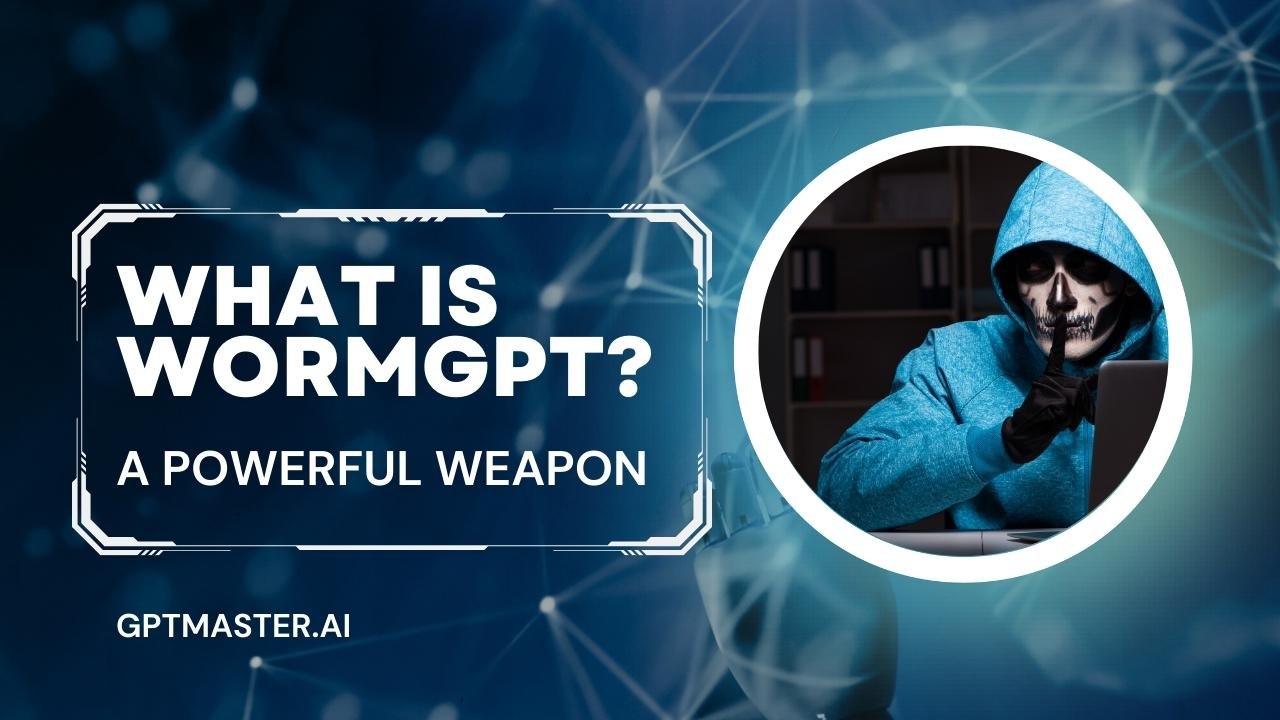Introduction
WormGPT, a generative AI tool based on the GPT-J language model developed in 2021, has become a powerful weapon for cybercriminals. Its capabilities include generating natural language text, supporting unlimited characters, retaining chat memory, and formatting code, making it a formidable tool in launching cyber attacks. This article will delve into the workings of WormGPT, its features, the potential dangers it poses, and its impact on ordinary users.
See More : How to Use Chat GPT Reverse Proxy: A Comprehensive Guide
What is WormGPT?
WormGPT is an AI module developed on the foundation of GPT-J, an open-source large language model. Its primary function is to generate natural language text from a given input or context, making it useful for various applications such as content creation, chatbots, and text completion. However, cybercriminals have harnessed its power for malicious purposes, using it to automate phishing attacks and compromise business emails.
The Features of WormGPT
Unlimited Character Support
WormGPT can handle vast amounts of text, making it an ideal tool for generating lengthy, convincing messages.
Chat Memory Retention
It can retain contextual information during a conversation, allowing it to create responses that seem natural and authentic.
Code Formatting Capabilities
WormGPT can handle code snippets, making it an attractive choice for cybercriminals planning attacks involving code-based exploits.
How WormGPT Empowers Cybercriminals
Phishing Attacks
WormGPT’s primary application in the hands of cybercriminals is automating phishing attacks. By using its capabilities to create personalized and convincing fake emails, hackers can trick users into revealing sensitive information unwittingly. These phishing emails may appear legitimate, leading users to click on malicious links or share confidential data, causing severe security breaches.
Business Email Compromise (BEC) Attacks
The tool’s sophistication extends to launching BEC attacks. Cybercriminals can exploit WormGPT’s natural language generation abilities to compose deceptive emails that target businesses. By compromising business emails, hackers can gain unauthorized access to sensitive data, conduct fraudulent transactions, and cause significant financial damage.
The Threat to Ordinary Users
WormGPT poses a grave threat to ordinary users. With its ability to generate authentic-seeming text, it becomes challenging to distinguish between genuine and fake communications. Cybercriminals can take advantage of this, leading unsuspecting individuals to divulge personal information, fall victim to scams, or suffer financial loss.
Also Read : How Does WormGPT Work: Unraveling the Intricacies of a Dangerous AI Tool
Examples of WormGPT Attacks
Phishing Attack Example
Imagine receiving an email that appears to be from your bank, notifying you of suspicious account activity. The email addresses you by name, includes legitimate-looking logos, and instructs you to click a link to verify your account details. Unbeknownst to you, WormGPT generated this email, and the link leads to a fraudulent website designed to steal your login credentials and financial information.
BEC Attack Example
In a BEC attack, WormGPT aids hackers in impersonating a company executive. Using the tool’s language generation capabilities, the attacker crafts an email to the finance department, requesting an urgent money transfer to a supposed vendor. The finance team, believing the email is genuine, unknowingly transfers funds to the criminal’s account.
Frequently Asked Questions (FAQs)
Q: How does WormGPT work?
A: WormGPT is an AI tool based on the GPT-J language model that generates natural language text. It can process vast amounts of text, retain chat context, and handle code snippets, making it a powerful tool in the hands of cybercriminals.
Q: What is the primary application of WormGPT in cyber attacks?
A: WormGPT is predominantly used to automate phishing attacks and business email compromise (BEC) attacks. Its natural language generation capabilities allow hackers to create convincing fake emails to deceive and manipulate users.
Q: Can WormGPT be used for legitimate purposes?
A: While WormGPT has legitimate applications, such as content creation and chatbots, it has unfortunately been leveraged by cybercriminals to carry out malicious activities.
Q: How can users protect themselves from WormGPT attacks?
A: Users should be cautious when dealing with unsolicited emails and suspicious requests for personal information. Verifying the authenticity of emails and implementing strong cybersecurity measures can help reduce the risk of falling victim to WormGPT attacks.
Q: Are there any legal measures in place to curb the misuse of WormGPT?
A: Governments and tech companies are continually working to combat cybercrime, including the misuse of AI tools like WormGPT. Legislation and AI ethics frameworks are being developed to address these concerns.
Q: Can WormGPT be used to generate harmful content other than phishing emails?
A: Yes, WormGPT’s ability to generate natural language text can be exploited to create harmful content, including disinformation, fake news, and other forms of malicious messages.
Conclusion
WormGPT, a generative AI tool originally designed for benign purposes, has become a formidable weapon in the hands of cybercriminals. Its ability to automate phishing attacks and compromise business emails poses significant threats to personal data security and financial well-being. With ever-evolving cyber threats, it is crucial for individuals and businesses to remain vigilant, implement robust security measures, and be cautious when interacting with digital communications.

